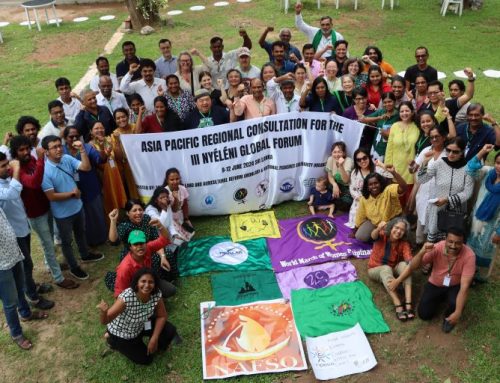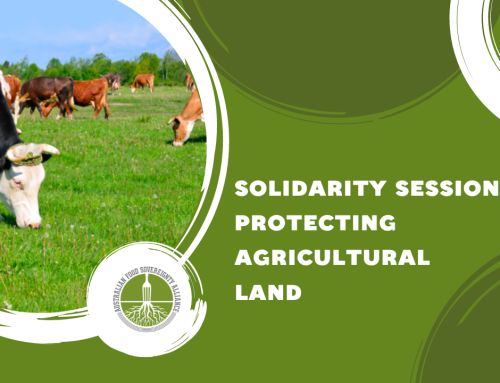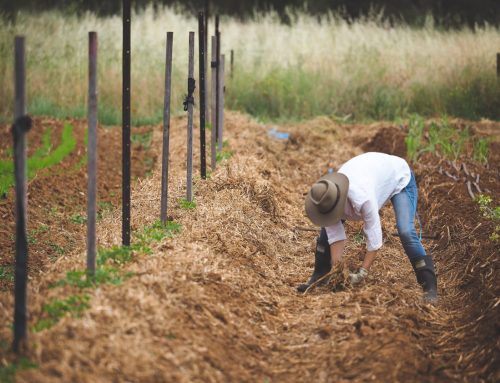Before I left Australia I thought our food and agriculture systems had some serious issues. Increasing rates of dietary-related ill-health. Decreasing numbers of farmers. Increasing power of the supermarket duopoly, to the detriment of most other players in the food system. Increasing rates of biodiversity loss, soil degradation, and loss of farmland due to urban sprawl and mining.
And so on.
After nearly six weeks travelling through the US Mid-West, Toronto and three cities of Argentina’s interior, I’ve realised – or rather been reminded – that everything is relative. The challenges that Australia faces, grave as they are, need to be put into perspective. As a country, we are at one point of a curve of a global food system crisis that is much, much more acute in other places.
 One such place is Detroit, where I was three weeks ago. What was once one of America’s richest cities, has long since become a by-word for poverty, violence, unemployment, crime and urban blight. As the auto industry crashed and burned, it took the city with it. From a population high of 1.8 million in the early 1950s, Detroit now has 750,000 people. Unemployment and poverty rates exceed 50%. Diabetes has reached pandemic proportions.
One such place is Detroit, where I was three weeks ago. What was once one of America’s richest cities, has long since become a by-word for poverty, violence, unemployment, crime and urban blight. As the auto industry crashed and burned, it took the city with it. From a population high of 1.8 million in the early 1950s, Detroit now has 750,000 people. Unemployment and poverty rates exceed 50%. Diabetes has reached pandemic proportions.
Argentina
Yet even Detroit seems to be in less desperate straights than the thousands of people who live in the cinturones de pobreza (poverty belts) that ring the cities that I have visited, Tucuman and Rosario especially. The conditions in the so-called villas de emergencia (emergency towns) or asentamientos (settlements) are confronting and shocking. Many of the dwellings are shacks, not anything Australians would recognise as ‘houses’, with plastic covering to keep out rain and provide some modicum of insulation against sub-zero temperatures.
Domestic violence is endemic, and child abuse is frequent. Teenage pregancies are common. Unsurprisingly, drug taking – which often assumes the most destructive forms, such as glue sniffing – is rampant amongst adolescents. I am reminded of the early 1970s song by the Venezuelan band Los Guaro Guaros, about the conditions in the slums of Caracas:
Que triste, vive mi gente,
En las casas de carton
Que triste, vive los niños
En las casas de carton
(How sad my people live
In their cardboard houses
How sad do the children live
In their cardboard houses)
Life is hard. Very hard. And yet life goes on. And a key way in which members of these communities are achieving a measure of dignity – and improving their quality of life – is through having access to garden spaces – either in their own yards or in a public space.
Pro Veggie Garden
The Pro Huerta (Pro Veggie Garden) program, which was established 25 years ago by the Argentina national government, helps 600,000 families throughout the country establish and maintain their own veggie gardens. It does this through the provision of high quality organic seed (the only provider of such seed in Argentina), workshops, and technical support through a national workforce numbering over 800 and a network of volunteer promotors numbering close to 20,000.

This is what I have come to Argentina to observe, to see what difference a national program of such magnitude makes to people facing conditions of extreme poverty. In Rosario, where I will be for the next few days, the local government has taken this concept to the next level. They have a workforce of 40 full-time staff dedicated to support urban agriculturalists scale up their production to a commercial level. The local government has made 22 hectares available to dozens of families to cultivate on an agro-ecological basis, and crucially provided infrastructure and marketing support, in the form of 10 producers’ markets that take place throughout the city on nearly every day of the week. 250 producers sell at these local markets. They can’t meet the demand.
From a cauldron of misery, good things are emerging. It’s humbling and inspiring to witness.




